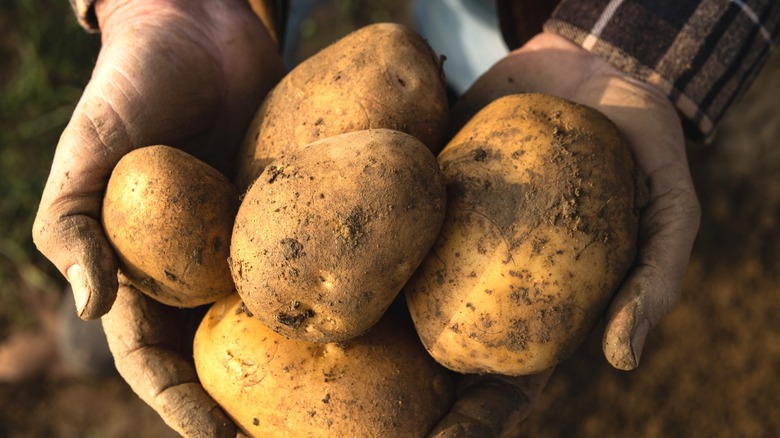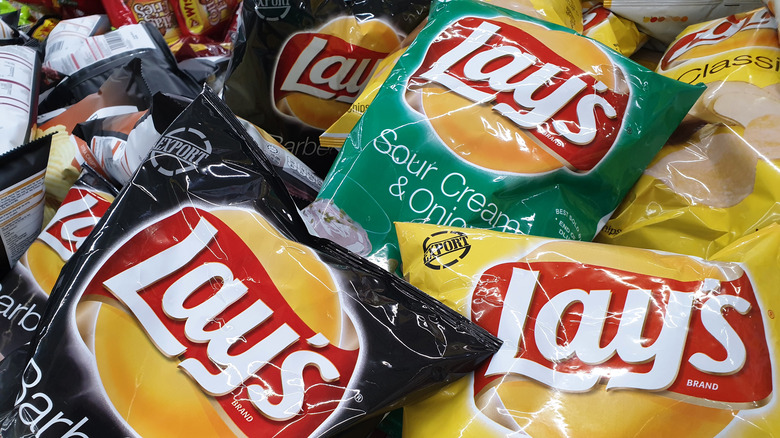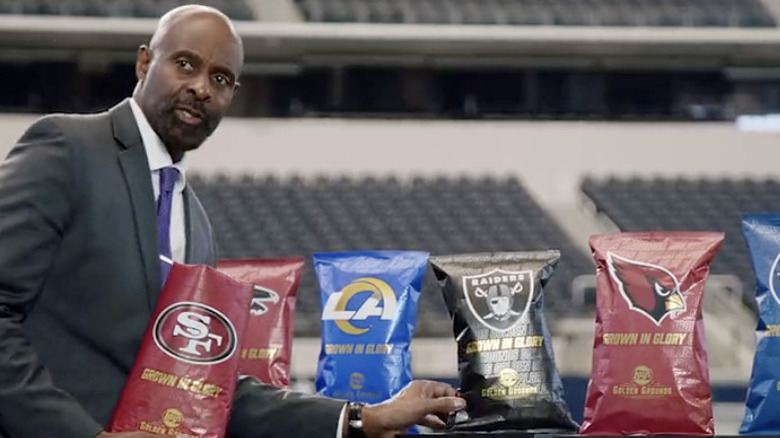How Frito-Lay Supports Local Potato Farmers
It's comforting to know exactly where your food comes from — even better if it's sourced locally or, at the very least, within the borders of your own home country. True transparency in the world of food production is often difficult to achieve, especially with the passage of laws like the 2015 Country-of-Origin Labeling (COOL) Act. This law eliminated the requirement for foreign beef and pork products to disclose their place of origin. That's why it's refreshing to discover that a giant food manufacturer still sources its produce from local potato farmers.
Lay's potato chips were invented during the Great Depression by a traveling salesman named Herman W. Lay, who started by hawking crispy chips from his Ford Model A. And just a few years later, Lay's potato chips went on to become a massive and successful American corporation. Merging with the Fritos Company to form Frito-Lay in 1961, to later become a subsidiary of PepsiCo, it's known today as one of the largest snack companies in the world. That makes it even more remarkable that the original product, Lay's potato chips, still clings to deep local roots — at least when it comes to the billions of potatoes it purchases annually.
Direct-grower sourcing
The modern version of Lay's potato chips, still sold under the Frito-Lay brand, looks a whole lot like the original as far as potato sourcing is concerned. About 165 farms spanning 25 states grow the company's tubers, fueling the potato-chip reign over snack foods while holding sway at picnics, parties, binge-watching nights, Superbowl celebrations, and church socials.
It takes about 4 billion pounds of potatoes to source enough potato chips for the U.S. and Canada markets alone, reveals PepsiCo. Frito-Lay North America's senior procurement director, Keith Ballard, explains that those potatoes are still procured under direct-grower sourcing, with the company knowing the origin — down to the farm and field — of every potato.
The Hartford Courant explains that Lays factories, at least 30 of them, operate in multiple states, with a "load to fry" goal of 24 hours, meaning the potatoes ideally get picked, then loaded and processed in under a day. Either trucks or refrigerated trains move spuds from fields, which span a wide swath of America from Michigan, Wisconsin, Maine, Washington, California, Texas, and many more.
Since it takes at least four potatoes to fill a single bag of Lay's potato chips, and the company sells millions of bags every year, American potato farmers have stayed busy for decades — planting, nurturing, and harvesting enough spuds to feed countless chip devotees.
NFL dirt farming
Frito-Lay went the extra mile in their marketing efforts by initiating a project that involved using soil from 29 of the 32 NFL team stadiums to grow some of their potatoes. According to CNET, soil from team stadiums got transported to fields in Texas, where farmers grew the spuds before going through Lay's cooking, processing, and packaging. The bagged chips, dubbed Lay's Golden Grounds, showcased each team and were only available via a Twitter-based sweepstakes. Sorry, but it was a limited-edition thing, so it's unlikely any of these are still in warehouses or store shelves.
You can, however, watch a video hosted by NFL champion Jerry Rice, which shows the stadium dirt being extracted, transported, and planted with potatoes before harvesting and being turned into a new version of Lay's potato chips. As for those Texas potato farmers, they're no doubt still growing spuds in fields laced with traces of that gridiron glory.


